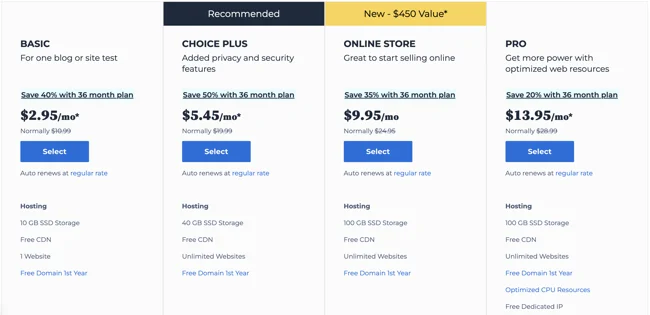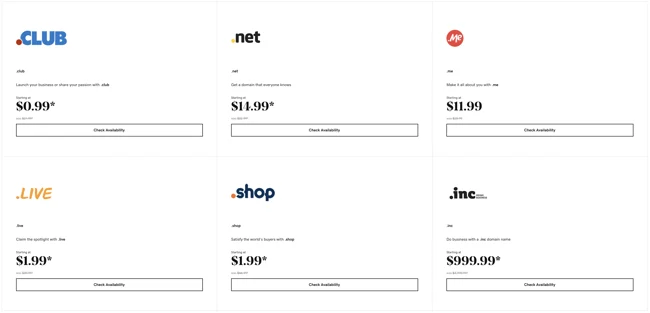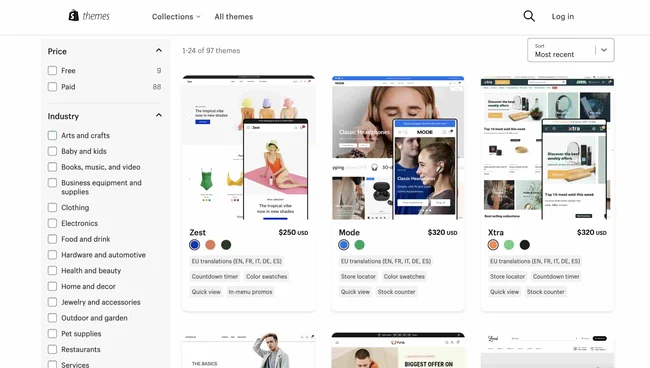In today's digital age, a website serves as the virtual front door to your business, project, or personal brand. Whether you're a small business owner looking to establish an online presence, an entrepreneur launching a startup, or an individual showcasing your talents, the question of website cost is an important one. As we dive into 2023, the landscape of website development continues to evolve, bringing with it new possibilities and considerations. So, if you've ever wondered about the investment required to bring your online vision to life, you're in the right place. In this guide, we'll break down the various factors that contribute to website costs in 2023, giving you a clear and straightforward understanding of what to expect. Whether you're tech-savvy or just starting, our aim is to demystify the process and empower you to make informed decisions about your online journey.

Website Making Cost Structure
As per WebFX, creating a website can cost anywhere from $12,000 to $150,000 on average. Additionally, maintaining a website can range from $400 to $60,000 each year.
That's quite a wide range, isn't it? The cost of your website depends on who builds it, the type of website you're making, the hosting service you pick, and the templates and add-ons you use.
For example, you could make a website for free using platforms like Wix, Appy Pie Website, Weebly, or HubSpot CMS. But keep in mind, some of these platforms might display third-party ads on your site, and to have your custom web address, you might need to upgrade to one of their paid plans. (By the way, having your web address is a good investment!)
Create Amazing Websites
With the best free page builder Elementor
Start NowTo help you figure out how much your dream website might cost, let's go over the main expenses for building and running a website.
Software Expenses
The first and most important decision you'll need to make is whether to use open-source software, such as WordPress, or proprietary software, like CMS Hub. If you're just beginning, you might want to give CMS Hub a try for free to see how it works for you.
Now, let's break down the difference between open-source and proprietary software. Open-source software is free to download, but there are other expenses to consider. You'll need to buy hosting from a third-party provider and get an SSL certification. There's also a chance you'll need to buy extra tools to keep your site secure, up-to-date, and well-maintained.
On the other hand, if you choose proprietary software, you won't have to stress about hosting or the security, speed, and reliability of your site. Instead, you'll pay a single monthly fee for a fully taken care of service.
The cost of proprietary software varies a lot. For example, a website builder like Wix starts at $16 per month, while CMS Hub Professional begins at $360 per month. More advanced content management systems can be even pricier. CMS Hub Enterprise, for instance, starts at $1200 per month.
But here's the catch: if you want something easy to manage, proprietary software can be a good investment.
So, the total software cost can range from $0 to $25,000 per month, depending on your choice.
Web Hosting Cost
Web hosting comes in two main types: one that's already included with special software, and another that you need to think about separately if you're using open-source software or building your site from scratch.
When it comes to hosting services, there are different choices available, like shared, managed, VPS, and dedicated hosting. These options have different features and prices, ranging from around $3 to $400 each month. Shared hosting is the cheapest because you share a server with other websites, while dedicated hosting is the most expensive because you get your server.
To decide between shared and dedicated hosting, consider how many people visit your site each month and how much you want to spend.

Let's take an example. Imagine you want to create a website using WordPress.org. You're a small business and you want to get your site up and running quickly. You could choose Bluehost's Starter plan, which costs $2.95 per month. This plan supports up to 15,000 visits each month and even includes a free SSL certificate and domain name for the first year. There are other hosting providers like Cloudways, Kinsta, SiteGround, NameCheap, etc, which are also better options to choose from.
If your site doesn't get a lot of visitors or you want to save money, start with shared hosting and upgrade later. But if your site gets a ton of visitors, it might be worth investing in a dedicated server to make sure it doesn't crash.
So, the total cost of web hosting ranges from $3 to $400 per month.
Domain Registration Fee
The cost of a domain name can vary widely depending on several factors. On average, a domain name can cost anywhere from $10 to $50 per year. However, premium or highly sought-after domain names can cost significantly more, ranging from hundreds to even millions of dollars.

The pricing of a domain name is influenced by factors such as:
- Domain Extension (TLD - Top-Level Domain): Different domain extensions have different price ranges. Common extensions like .com, .net, and .org tend to be more affordable, while specialized or newer extensions like .tech, .app, or .design might be priced higher.
- Domain Registrar: The company from which you purchase your domain name (domain registrar) can affect the price. Some registrars offer competitive pricing or bundle domain names with other services.
- Domain Name Length and Popularity: Short, memorable, and keyword-rich domain names are often in high demand and can command higher prices. Generic words or phrases might also be more expensive due to their broad appeal.
- Premium Domains: Premium domain names are those considered highly valuable due to their relevance, branding potential, or keyword significance. These domains can come with a premium price tag.
- Renewal Fees: Keep in mind that domain names require annual renewal, and the renewal fee may or may not be the same as the initial purchase price.
- Domain Auctions: Some domain names are sold through auctions, which can drive up the price if multiple parties are interested.
- Domain Privacy Protection: This service, which helps keep your personal information private, may add a small annual fee to your domain cost.
- Domain Resellers: Sometimes, third-party resellers may offer domain names at different prices based on their pricing models.
It's important to research and compare different domain registrars to find the best deal for your needs. Additionally, consider your long-term goals and the branding impact of your chosen domain name, as these factors can justify investing more in a premium or memorable domain.
SSL Certificate
Website security comes in different ways. One important aspect that people often forget is choosing a good web hosting provider for security. There are different things to consider when you're building a website and thinking about its security. These include SSL certificates, firewalls, making the server strong, and monitoring services. Even though these things might add to the cost of creating a website, they are really important to keep your website safe. You can get free SSL certificates like LetsEncrypt, but sometimes it's a good idea to pay for one, which might be around $250 each year. There's a free plugin called Sucuri for WordPress websites, but their more advanced service starts at $199.99 per year. Most of the time, reliable security services need you to pay regularly. It's worth spending money on security because having peace of mind is important. So, when you're budgeting for your website, remember to include the cost of security.
Web Design & Development
Many website builders and platforms have free templates that you can easily change using a drag-and-drop editor. This lets you alter your site's appearance quickly, without having to start from scratch or learn coding.
Some platforms offer fewer choices in templates than others. If that's the case, you might need to buy a special template to achieve the exact look you want.

Let's take Shopify as an example. It offers nine free themes, but if you want your online store to look distinct, you can go for a premium theme. These cost between $200 and $350.
If you want your website to really stand out, you can collaborate with a designer to make a completely unique site. However, this does come with a price tag.
Maintainance Cost
Taking care of your website is like taking care of a car – it requires occasional check-ups. A good place to begin is by looking at our recommended list of top WordPress backup plugins, as creating backups is an important part of maintenance. Other tasks involve keeping plugins up to date, adding new content, and more. To ensure the security and functionality of your website, you should renew your license annually for plugins and themes. Additionally, some providers offer monitoring and maintenance services, which can range from as low as $49 per month to a few hundred dollars, depending on your website's type.
Wrapping Up
When you create a website using WordPress, you can save money. Other website builders have ongoing costs that never stop. However, they handle things like security and upkeep for you, though your site might not have all the features you want. On the other hand, making a website with a pro gives you the most assurance, but it's more expensive and might have extra charges later on. This guide should help you make your website without spending too much.




